This article was medically reviewed by Luba Lee, FNP-BC, MS and by wikiHow staff writer, Danielle Blinka, MA, MPA. Luba Lee, FNP-BC is a Board-Certified Family Nurse Practitioner (FNP) and educator in Tennessee with over a decade of clinical experience. Luba has certifications in Pediatric Advanced Life Support (PALS), Emergency Medicine, Advanced Cardiac Life Support (ACLS), Team Building, and Critical Care Nursing. She received her Master of Science in Nursing (MSN) from the University of Tennessee in 2006.
There are 19 references cited in this article, which can be found at the bottom of the page.
This article has been viewed 18,157 times.
Cystitis is inflammation of your bladder which causes pain and a persistent, urgent need to urinate. Although acute cystitis is often caused by an infection, such as a urinary tract infection (UTI), you can also develop chronic interstitial cystitis, which persists over a long period of time. Coping with cystitis can be frustrating and difficult, especially at night. Fortunately, you can sleep better with cystitis by relieving your symptoms, eliminating foods that can irritate your bladder, and making lifestyle changes.
Steps
Relieving Your Symptoms
-
1Pull your legs into your chest if you sleep on your side. Turn onto your side, then bend your knees up toward your chest. You'll be in a partially open fetal position. This will relax your pelvic muscles, relieving your pain.[1]
- For added comfort, place a pillow between your legs to align your hips and spine.
-
2Spread your legs out if you sleep on your back. Part your legs, creating a wide triangle. Place your arms down at your sides or above your head, depending on your preference. This helps your pelvic muscles relax and relieves your pain.[2]
- If one position doesn’t work for you, try the other one. It may be more comfortable to you.
- You might also try adding pillows to improve your comfort level. For example, put a pillow under your lower back to align your hips and spine.
Advertisement -
3Place a warm compress against your abdomen or between your legs. Use a hot water bottle or a disposable heat wrap, which will cool over time. Press the warm compress against your skin for about 30 minutes either right before bed or as you’re trying to fall asleep.[3]
- If you want to use the compress as you fall asleep, it’s essential that you choose something that will cool off over time, like a hot water bottle or disposable heat wrap. Otherwise, you risk getting burned. Don’t use a heating pad, as it can increase your risk of getting burned.
-
4Take NSAIDs to alleviate pain, if your doctor approves. Over-the-counter pain relievers like ibuprofen (Advil, Motrin) or naproxen (Aleve) relieve pain and inflammation. Take 1 dose about 30 minutes before bed to help control pain.[4]
- Read the label and follow all dosing instructions.
- NSAIDs aren’t a long-term treatment option, so talk to your doctor if your pain is persistent.
- If you can’t take NSAIDs, acetaminophen (Tylenol) may also provide pain relief for your symptoms.
- If NSAIDs don’t help with your pain, talk to your doctor to find out if prescription pain relievers might be right for you. For example, they may prescribe amitriptyline, gabapentin or pregabalin to help provide your relief. However, keep in mind that some painkillers can be habit-forming.
-
5Ask your doctor about phenazopyridine. This is an oral medication that provides local pain relief when you urinate. You may be able to take a low-dose of this medication without a prescription. However, it requires a prescription in higher doses. Check with your doctor to see if this might be a helpful option for you.[5]
- This medication is excreted in your urine and it can turn your urine orange or yellow.
- It does not provide antibiotic benefits.
- You will have to take the medication 3 times daily to get continuous relief.
-
6Ask your doctor if an antihistamine can help reduce urinary urgency. The antihistamines loratadine (Claritin) and cetirizine (Zyrtec) can reduce how often you feel the need to urinate, which may reduce the interruptions to your sleep. Additionally, an antihistamine can also reduce the intensity of your urges. However, they may not work for everyone.[6]
- Talk to your doctor before taking any medication, especially if you’re already taking an antihistamine.
- Loratadine and cetirizine are non-drowsy antihistamines, so they shouldn’t make you feel sleepy.
-
7Talk to your doctor about taking an antidepressant for pain and urinary frequency. Most antidepressants provide pain relief, and tricyclic antidepressants also reduce how often you feel the urge to urinate. These medications are a common treatment for interstitial cystitis, which is recurring. However, they aren’t right for everyone, so follow your doctor’s recommendations.[7]
- Like all medications, antidepressants can cause side effects. However, they may go away over time.
- For regular antidepressants, these side effects can include agitation, anxiety, headache, nausea, diarrhea, constipation, loss of appetite, insomnia, fatigue, dizziness, and low sex drive.
- For tricyclic antidepressants, side effects may include dry mouth, blurry vision, drowsiness, dizziness, weight gain, sweating, constipation, trouble passing urine, and heart palpitations.[8]
Eliminating Foods that Irritate Your Bladder
-
1Cut carbonated beverages out of your diet to reduce bladder irritation. This includes any type of carbonated drink, such as soda, seltzer, champagne, and flavored waters. If a drink is fizzy, then it might irritate your bladder.[9]
- Switch out these drinks for other beverages you enjoy, such as caffeine-free herbal tea.
-
2Eliminate caffeine to ease your bladder symptoms. Even small amounts of caffeine can irritate the lining of your bladder, making your symptoms worse. Cut out coffee, caffeinated tea, soda, and even chocolate, which contains a small amount of caffeine. This can help reduce your bladder inflammation.[10]
- If you’re taking any dietary supplements, such as energy or weight loss pills, check that these don’t contain caffeine. If they do, look for an option that is caffeine-free.
-
3Consume fewer citrus products, which can cause bladder irritation. The acid in citrus fruits and citrus fruit drinks can aggravate the lining of your bladder. Unfortunately, this can increase your cystitis symptoms.[11]
- If you don’t want to completely eliminate citrus foods and drinks from your diet, try taking an over-the-counter antacid with your meals to reduce the amount of citric acid that makes it into your urine. This can help reduce your symptoms.[12]
-
4Eat just enough vitamin C to meet your daily requirements. Vitamin C is a vital nutrient in your diet, but it can also irritate your bladder lining and cause inflammation. Don’t take vitamin C supplements to increase your consumption of the vitamin, unless instructed to by your doctor.[13]
- Although citrus fruits are a great source of vitamin C, you can still get plenty of vitamin C through your diet even if you’re cutting back on citrus. Other good sources of vitamin C include broccoli, Brussels sprouts, cabbage, cauliflower, cantaloupe, honeydew melons, and potatoes.[14]
-
5Keep a food diary to determine if other foods bother your bladder. Unfortunately, any food that’s high in acid can inflame your bladder and worsen your cystitis symptoms. However, everybody is different, so don’t eliminate other potential offenders unless you suspect they’re to blame for your symptoms. To determine the foods that bother you, write down everything you eat, as well as how bad your symptoms were in the hours and days afterwards.
- For example, some people find that fermented foods, alcohol, spices, tomatoes, and artificial sweeteners worsen their bladder symptoms. However, this isn’t true for everyone, so it helps to keep a food diary.[15]
- Try following an elimination diet to help you identify foods that are irritating your condition.
- If acidic foods are a problem for you, talk with your doctor about adding calcium glycerophosphate to your diet to help neutralize the effects of these foods.
Making Lifestyle Changes
-
1Avoid having sex right before bed. Since sex is a common trigger for cystitis flare-ups, it’s best to avoid it right before bed. This way you don’t trigger your pain, discomfort, and urinary urges right before you’re planning to go to sleep.[16]
- Instead, have sex earlier in the day, if it’s something you want. Afterwards, be sure to urinate to eliminate any bacteria that may have gotten into your urethra.[17]
-
2Drink your fluids earlier in the day so you can drink less in the hours before bed. Although staying hydrated can reduce your cystitis symptoms, drinking a lot before bed will keep you up all night with bathroom visits. In the 2-3 hours before bed, try to avoid taking in more fluids.[18]
- Make sure you drink more earlier in the day so you don’t become dehydrated. For example, drink a glass of water with breakfast, lunch, and dinner, sip on a bottle or 2 of water during the workday, enjoy a post-work herbal tea, and eat soup or a smoothie for one of your meals.
-
3Use only unscented personal care products around your genital area. This includes soaps, bath products, and body powders. Perfumes and fragrances can irritate the skin around your genital area and can get into your urinary tract. If this happens, it increases your risk of an infection and discomfort.[19]
- Switch to fragrance-free products, which are less likely to cause issues.
-
4Wear loose clothing and pajamas that don’t squeeze your abdomen. This can reduce your urgency to urinate during the day and night. Additionally, you’ll feel more comfortable, which should help you sleep more easily.[20]
- Opt for looser fitting pants, shorts, and skirts.
- You might decide to just sleep in a long shirt rather than wearing pajama bottoms, as the waistband can press into your abdomen.
-
5Relieve your stress so your body, including your bladder, feels relaxed. Stress can tense all of the muscles, even those in your pelvis. Unfortunately, this can lead to cystitis flare-ups. Luckily, relaxation can help. Here are some ways to cut down on your stress:[21]
- Meditate for at least 10 minutes a day.
- Color in an adult coloring book.
- Picture yourself in a relaxing place, such as the beach.
- Use guided imagery
- Play with your pet.
- Go on a nature walk.
- Journal to work through your thoughts.
-
6Prevent constipation by drinking water and eating fiber-rich foods. Constipation can aggravate your condition, so it is important to avoid becoming constipated whenever possible. Incorporate vegetables, fruits, and whole grains into your diet and drink lots of water throughout the day.[22]
- If you become constipated, you may need to take an over-the-counter stool softener to relieve it.
-
7Stop smoking if you do. Although they may seem unconnected, smoking can irritate the lining of your bladder because it contains chemicals that do so. Since quitting is very hard, talk to your doctor about quitting aids that may be right for you.[23]
- You might be able to use gum, patches, or a prescription medication to help you quit. Additionally, joining a support group can help.
-
8Exercise for at least 30 minutes every day, including stretching. Getting exercise can help release the tension in your pelvic muscles. Additionally, it helps boost your mood, which might help with pain. Choose a light to moderate exercise that won’t increase your discomfort.[24]
- For example, you might try walking, aerobics, kickboxing, or dancing.
- Since stretching can help, doing yoga might be a great option.
- Talk to your doctor before beginning any new exercise routines.
Expert Q&A
-
QuestionIs cider vinegar good for bladder infections?
 Jurdy Dugdale, RNJurdy Dugdale is a Registered Nurse in Florida. She received her Nursing License from the Florida Board of Nursing in 1989.
Jurdy Dugdale, RNJurdy Dugdale is a Registered Nurse in Florida. She received her Nursing License from the Florida Board of Nursing in 1989.
Medical Review Board Cider vinegar is not good for bladder infections. However, it can be used as a preventative to urinary tract infections. Cider vinegar may cause irritation if the infection is already present.
Cider vinegar is not good for bladder infections. However, it can be used as a preventative to urinary tract infections. Cider vinegar may cause irritation if the infection is already present.
Warnings
- If your cystitis is caused by an infection, such as a UTI, it’s very important that you get proper treatment from a doctor. Otherwise, it’s possible for your UTI to develop into a kidney infection, which is a serious health issue.⧼thumbs_response⧽
References
- ↑ https://www.ichelp.org/about-ic/symptoms-of-ic/icflares/
- ↑ https://www.ichelp.org/about-ic/symptoms-of-ic/icflares/
- ↑ https://www.nhs.uk/conditions/cystitis/
- ↑ https://pubmed.ncbi.nlm.nih.gov/15322343/
- ↑ https://medlineplus.gov/druginfo/meds/a682231.html
- ↑ https://www.nhs.uk/conditions/interstitial-cystitis/
- ↑ https://my.clevelandclinic.org/health/diseases/15735-interstitial-cystitis-painful-bladder-syndrome/management-and-treatment
- ↑ https://www.nhs.uk/conditions/antidepressants/side-effects/
- ↑ https://my.clevelandclinic.org/health/articles/14244-bladder-irritating-foods
- ↑ https://publicdocuments.sth.nhs.uk/pil2858.pdf
- ↑ https://my.clevelandclinic.org/health/articles/14244-bladder-irritating-foods
- ↑ https://my.clevelandclinic.org/health/diseases/15735-interstitial-cystitis-painful-bladder-syndrome/management-and-treatment
- ↑ https://www.hopkinsmedicine.org/johns_hopkins_bayview/_docs/medical_services/gynecology_obstetrics/bladder_irritants.pdf
- ↑ https://www.vegetables.co.nz/health/vegetable-nutrition/
- ↑ https://www.nhs.uk/conditions/interstitial-cystitis/
- ↑ https://patient.info/womens-health/lower-urinary-tract-symptoms-in-women-luts/recurrent-cystitis-in-women
- ↑ https://www.cdc.gov/antibiotic-use/uti.html
- ↑ https://www.nhs.uk/conditions/interstitial-cystitis/
- ↑ https://onlinedoctor.lloydspharmacy.com/uk/cystitis/cystitis-treatment
- ↑ https://www.fairview.org/Patient-Education/Articles/English/b/l/a/d/d/Bladder_Infection_Male_Adult_116674en
- ↑ https://my.clevelandclinic.org/health/diseases/15735-interstitial-cystitis-painful-bladder-syndrome
- ↑ https://www.hopkinsmedicine.org/health/healthy-woman/conditions/constipation-causes-and-prevention-tips
- ↑ https://www.aafp.org/pubs/afp/issues/2001/1001/p1212.html
- ↑ https://www.ichelp.org/diagnosis-treatment/management-of-ic-pain/bladder-retraining/
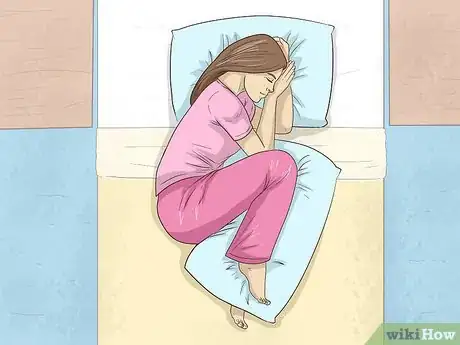
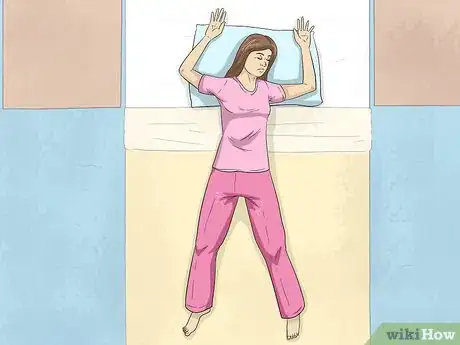
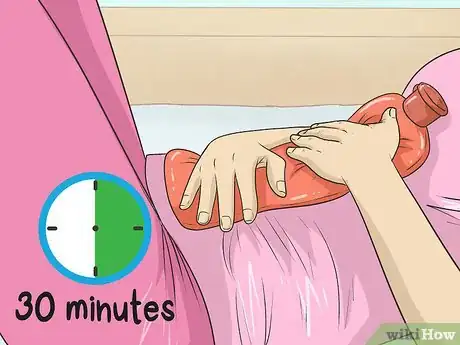
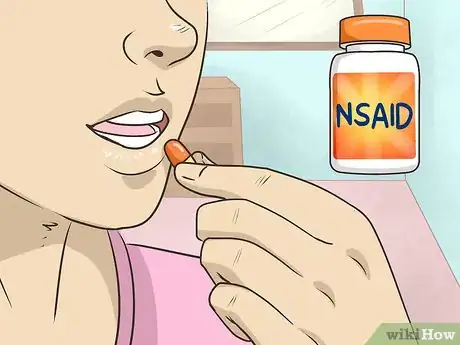
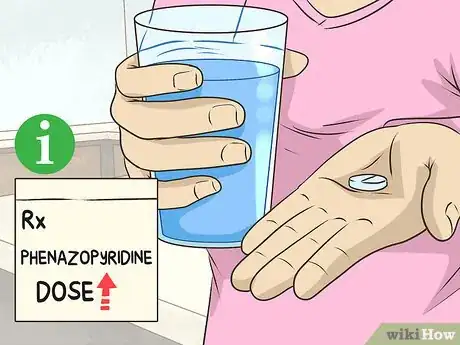
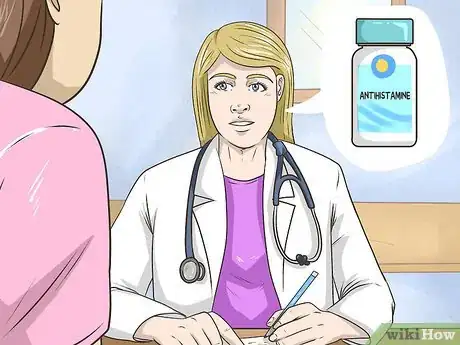
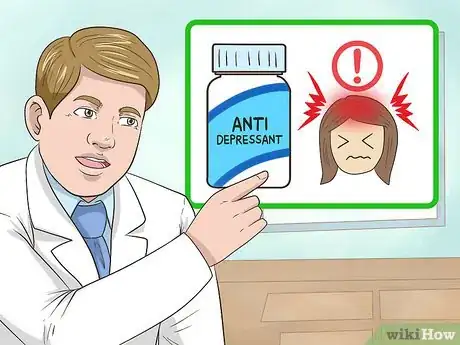
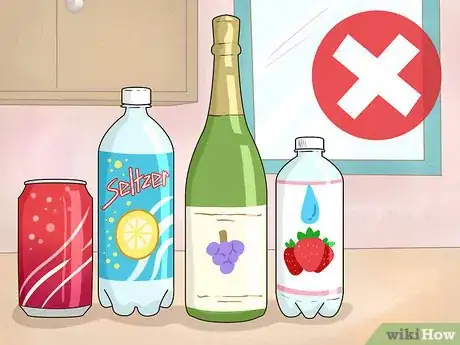
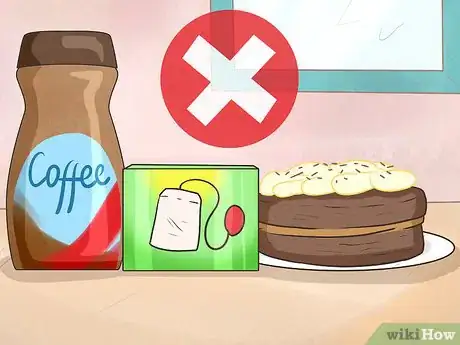
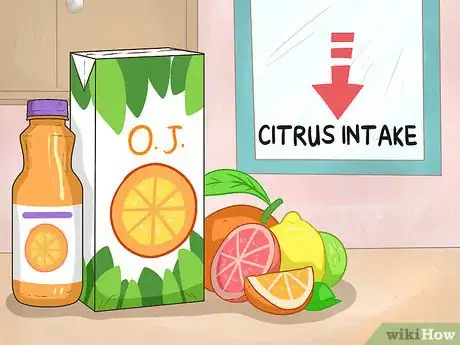
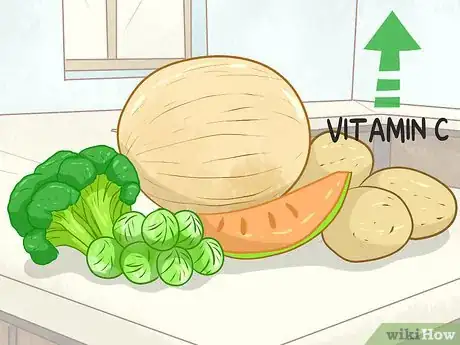
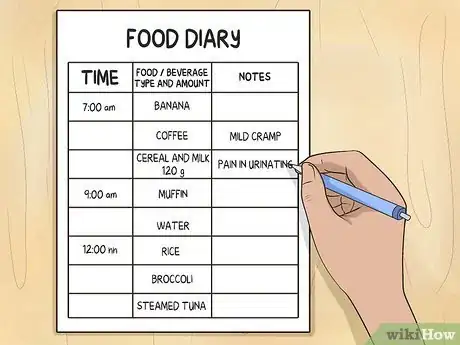
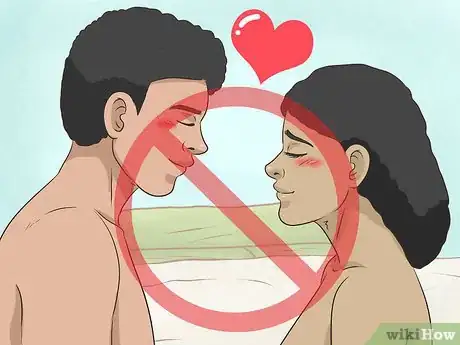
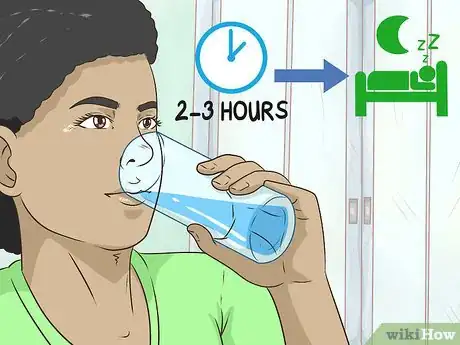
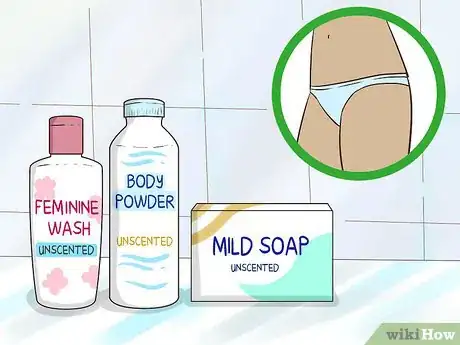
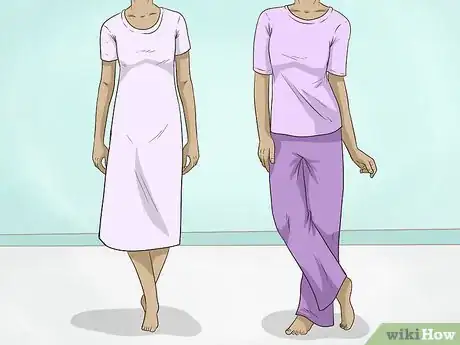
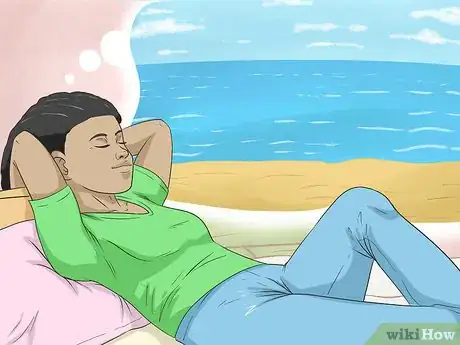
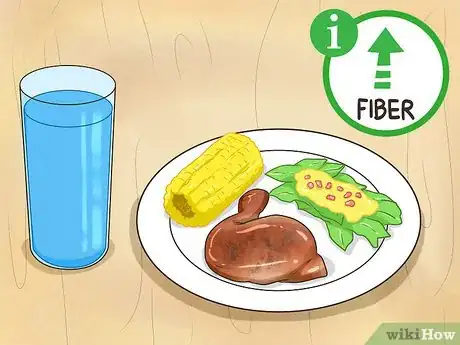
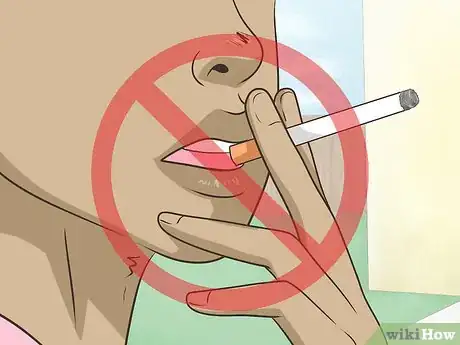
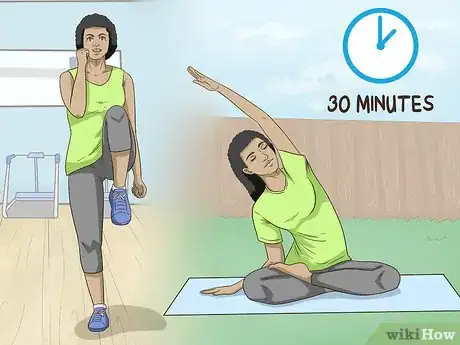

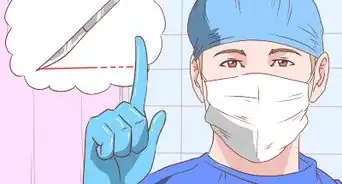
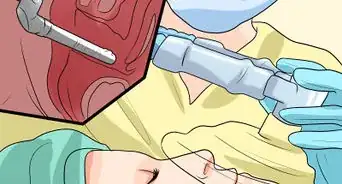
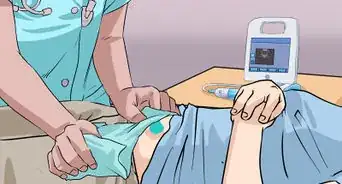
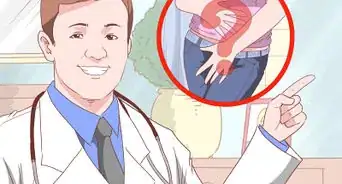
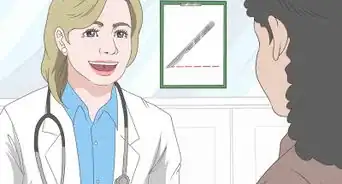
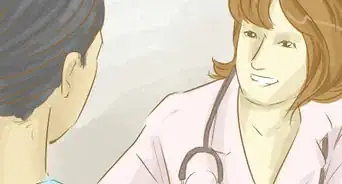
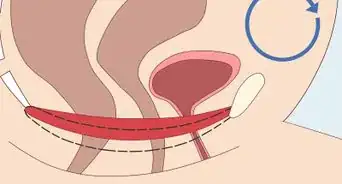
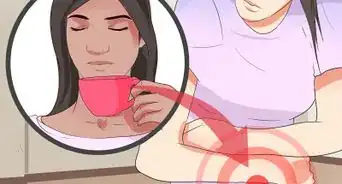
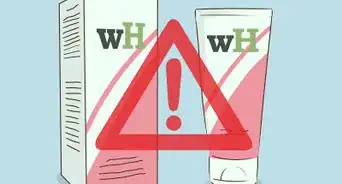
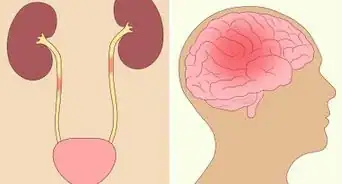
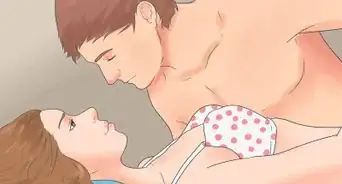
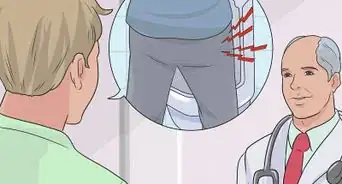








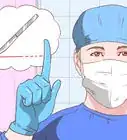
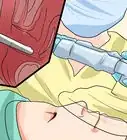
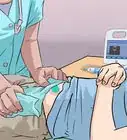



































Medical Disclaimer
The content of this article is not intended to be a substitute for professional medical advice, examination, diagnosis, or treatment. You should always contact your doctor or other qualified healthcare professional before starting, changing, or stopping any kind of health treatment.
Read More...